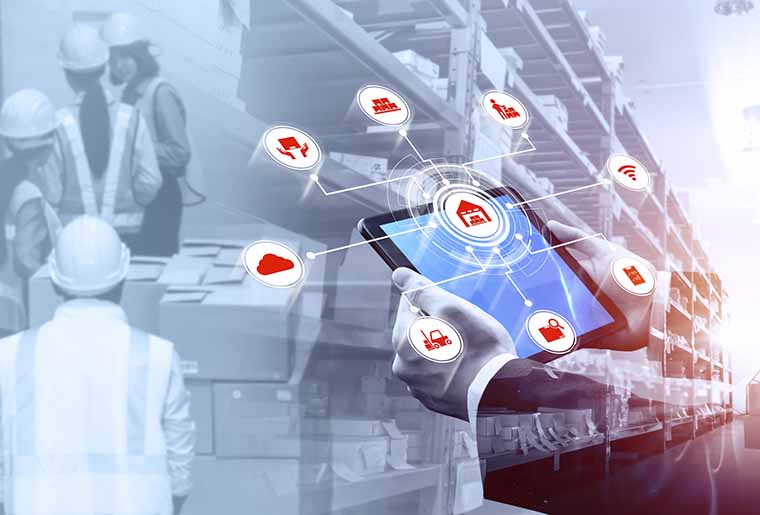In the dynamic world of logistics, the terms “logistics operator” and “logistics integrator” are often used interchangeably, but they represent services with very different scopes. Knowing their differences is crucial to choosing the ideal partner for your supply chain.
What is a logistics operator?
A logistics operator is a professional or company that, on behalf of a third party, designs, manages, controls, and/or maintains some or all areas of the supply chain.
For example, a logistics operator could be responsible for one, several, or all of the following tasks for the company that hires it: receiving, packaging, inventory, transportation, or distribution of goods.
This is, therefore, an outsourcing of logistics processes with the aim of improving costs and, sometimes, increasing the level of service.
Functions of Logistics Operators
The main function of a logistics operator is to optimize the product acquisition, storage, transportation, and distribution processes of the company they work for. This is always in terms of maximum cost and time efficiency, based on the agreement or contract signed by both parties.
Among the services or functions of a logistics operator are:
- Order Processing
This phase includes all activities related to the preparation, transmission, incoming orders, and outgoing orders. - Material Handling
Material handling includes all processes related to the movement of goods in the warehouse and other locations, as well as storage times and physical space. - Packaging
This section includes all operations related to the packaging of products. Nowadays, in addition to adequate product protection, great importance is placed on recycling, sustainability, and respect for the environment. - Product Transportation
This is one of the most common and important functions of a logistics operator. They are often hired solely for this function. To ensure adequate transportation, it is important to have the means of transport best suited to the product’s characteristics and to properly schedule routes. - Warehousing
Sometimes, the logistics operator is responsible for advising the company on which storage system best suits its business. Depending on the terms of the contract, this operator may also be responsible for the implementation and operation of the system. - Stock Control
The logistics operator’s duties may also include stock control or inventory control activities. This phase encompasses both stock management and the recording of products, quantities, and locations, using specific software and all types of digital media and elements.
What is a logistics integrator?
A logistics integrator is any professional or company responsible for all transportation-related activities that must be carried out in the chain to fulfill processes such as supply, production, marketing, final delivery to the customer, and acceptance of exchanges and returns.
Understanding that the environment, global dynamics, trends, and perceptions of the country and the world are forging a new strategy, at Linkarga we have become logistics integrators, prioritizing the processes in which we know we are strong and where we can perform with the same quality that characterizes us, while making life easier for our clients and stakeholders.
Logistics integration involves establishing a much more comprehensive portfolio of services for the client compared to the services that a logistics operator can offer.
Functions of logistics integrators
Do you know who the brains behind everything arriving on time and in perfect condition are? Logistics integrators. These professionals are the orchestrators of the supply chain, ensuring that every piece fits together perfectly. Let’s look at their main functions to understand exactly what a logistics integrator does:
- Warehouse Management:
Organizing and optimizing storage space, as well as managing the receipt, storage, and dispatch of goods. - Freight Transportation:
Coordinating and managing the transportation of goods from origin to destination, using different modes of transport (land, sea, air). - Inventory Control:
Implementing systems and processes to control product stock, ensuring product availability and avoiding excess or shortages. - Order Management:
Receiving, processing, and fulfilling customer orders, ensuring proper preparation, packaging, and shipping of products. - Distribution Optimization:
Planning and executing the distribution of products to customers, optimizing routes and delivery times. - Additional Services:
Offer complementary services such as packaging, labeling, order fulfillment, returns management, and other value-added services. - Technology and Innovation:
Use technologies and tools to improve supply chain efficiency, such as warehouse management systems (WMS), transportation management systems (TMS), and traceability solutions. - Consulting and Analysis:
Offer advice and analysis to optimize the client’s supply chain, identifying areas for improvement and proposing solutions.
Key Differences Between a Logistics Operator and a Logistics Integrator
Although both are fundamental to the supply chain, the main difference lies in their scope and level of involvement:
- Logistics Operator: Focuses on the execution and management of specific tasks or a part of the supply chain that the client decides to outsource. In other words, they act as a provider of specific services (e.g., transportation only, storage only). Their role is more tactical and focuses on optimizing the efficiency of the functions entrusted to them. An operator can specialize in a specific type of transport (land, sea) or in warehouse management.
- Logistics Integrator: Takes a holistic view of the entire supply chain, from the sourcing of raw materials to final delivery to the customer and returns management. Its objective is to coordinate and optimize all processes in an interconnected manner, acting as an architect of the supply chain. An integrator not only executes tasks but also provides strategic advice, implements advanced technologies, and seeks synergies between all phases to maximize overall efficiency and customer value. It is a more strategic and far-reaching partner.
Partida Logistics, your strategic partner in the supply chain
Whether you need an operator to seamlessly manage your customs operations or an integrator to optimize your supply chain from start to finish, at Partida Logistics we offer tailored solutions for your needs. Our deep experience in customs management and our comprehensive knowledge of logistics allow us to effectively integrate into your processes, ensuring a seamless flow of goods and maximum efficiency. With us, you’ll gain a partner who understands the complexity of international trade and will help you transform your logistics challenges into competitive advantages.




